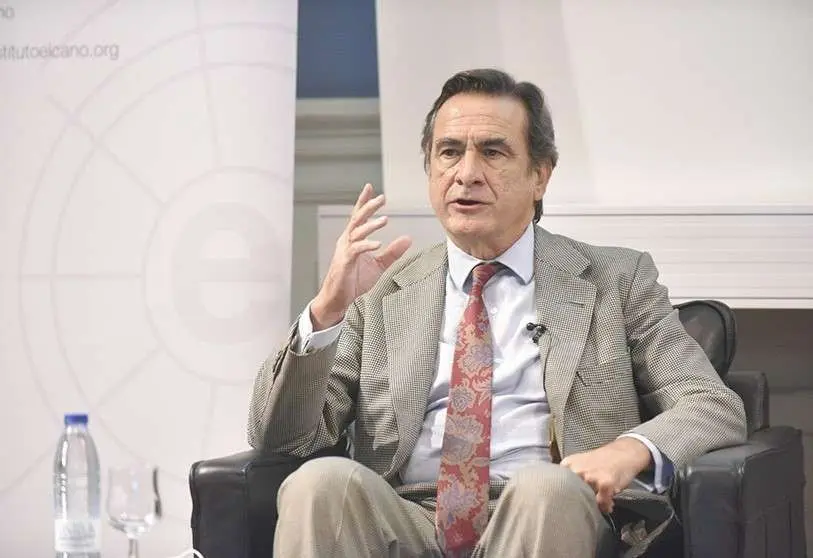Sendagorta represents Spain in the EU Council that extends sanctions on Russia

The Director General for Foreign and Security Policy of the Ministry of Foreign Affairs, Fidel Sendagorta, represented Spain on Monday at the European Union's Foreign Affairs Council, which approved, among other decisions, the Union's priorities for the 76th UN General Assembly and the extension of sanctions against Russia in relation to Ukraine.
The holding of the July Foreign Affairs Council (FAC) coincided with the extensive reshuffle of the government announced last Saturday by President Pedro Sánchez and with the transfer of the portfolio from the former Minister of Foreign Affairs, Arancha González Laya, to the new head of the department, José Manuel Albares. Apart from this, the event in Madrid was attended by all the secretaries of state of the Ministry, including those who, under normal conditions, usually replace the minister when he or she cannot attend the Council: the Secretary of State for Foreign Affairs for Latin America and the Caribbean, Cristina Gallach; and the Secretary of State for the European Union, Juan González-Barba.
Ministry sources told The Diplomat that Spain was represented by Fidel Sendagorta, and by the ambassador permanent representative of Spain to the European Union, Pablo García-Berdoy. In any case, Sendagorta is a veteran diplomat with extensive experience in the Ministry of Foreign Affairs, where he has served in the past, among other positions, as deputy director general of the Cabinet of the Minister, ambassador on special mission for the Mediterranean, director general for the Mediterranean, Maghreb and the Middle East and director general for North America, Asia and the Pacific. In addition, in his capacity as director general for Foreign and Security Policy, he is always in charge of organising Spain's agenda in the FAC.
Among the most important measures approved at Monday's FAC was the six-month extension -until 31 January 2022- of sanctions on certain specific economic sectors in Russia as a result of the latest assessment of the state of implementation of the Minsk agreements, which took place at the European Council in June. On that occasion, European leaders called on Russia to ensure full implementation of the Minsk agreements as a key condition for any substantial change in the EU's position. "In view of the fact that these agreements are not being fully implemented by Russia, EU leaders unanimously decided to extend the existing economic sanctions against the country," the FAC explained.
The foreign ministers also approved the EU's priorities for the 76th UN General Assembly (to be held between September 2021 and September 2022), including the defence of multilateralism, support for the UN as "an indispensable forum for international cooperation and a cornerstone of the multilateral system", reconstruction after the COVID-19 pandemic, the promotion of peace and security, the fight against climate change and the global digital agenda. The FAC also adopted the declaration 'A Globally Connected Europe', which advocates "a geostrategic and global approach to connectivity with the aim of advancing its economic, foreign policy, development and security interests and promoting European values".








